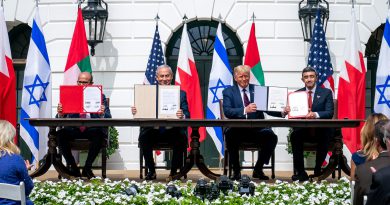OPINION: Shia-Sunni Unity – a mirage or reality?
by Imtiaz Ahmed
In this video, Al-Qaradawi says that he basically wasted his life on this Sunni-Shia unity business. He says that in unity only Shias benefit, Sunnis have nothing to benefit. In other words, as he is implying, unity is essentially a pretext for Shia to open up their Hussaynias and propagate Shi’ism in Sunni countries and to weaken traditional and authentic Sunnism.
Today in the international media there has been frequent article about the cold war between Saudi Arabia and the Islamic Republic of Iran.
And the whole issue is presented as a shear political struggle and there are many discussions happening also in social media with regards to Shia-Sunni unity and much hue and cry from the so called ‘intellectual’ and ‘moderate’ western educated Muslims calling for Shia-Sunni unity and portraying as though the Sunni scholars are not doing enough, especially the scholars of Ahlus Sunnah wal-Jamaa’ah, who are upon the path of the pious predecessors. This has resulted in much confusion upon the common folks to understand what the right stance in this issue is.
A common question pops up in the minds of the Muslims is that – when the core principle of Islaam is unity & brotherhood and when Islaam has seen and tolerated different opinions amongst the scholars of different schools of thought in rich Islamic heritage, why not then Sunni-Shia unity possible?
Why are the Sunni scholars not doing much when Shia coming forward stretching their hand with peace?
With the good intention of uniting this Ummah some popular scholars and speakers have openly advocated Sunni-Shia unity. But what needs to be understood here is that the whole issue is not so simple as it seems, when we look into the Islamic history the picture is different.
Throughout the centuries the Sunni Muslims [85 per cent of the world’s 1.5 billion Muslims] extended their hands for unity and peaceful co-existence with the Shia and our history is filled with tragedies and back stabbing inflicted by this Shia, until recently a well-known and controversial Sunni cleric who worked decades for Sunni-Shia unity, Sheikh Yusuf al-Qaradawi an Egyptian Islamic theologian. He is the president of the International Union of Muslim Scholars.
He is one of those Scholars who strived hard to establish Sunni-Shia Unity. He traveled to Iran during the era of former President Mohammad Khatami for the same purpose. However, he was warned and criticized by intelligent Sunni scholars who knew Shias much better than him. They warned him that he will be back-stabbed, he will be deceived, just like the other Sunnis in the past have been. Yet Al-Qaradawi continued.
We would like to present one example for our readers to understand the dedication of Al-Qaradawi to establish Sunni-Shia Unity.
“In 2006, in response to Scholar Abdullah Ibn Jibreen’s fatwa declaring that it was forbidden for Muslims to support or pray for Hezbollah because they are Shia, al-Qaradawi issued a contrary fatwa, stating that it was mandatory for all Muslims to support Hezbollah in its fight against Israel, stating that “Shias agree with the Sunnis in the main principles of Islam while the differences are only over the branches.”
But now after years, Al-Qardawi tasted the truth and shared his experience, which we consider to be beneficial for moderate and ignorant Sunnis.
In this video, Al-Qaradawi says that he basically wasted his life on this Sunni-Shia unity business. He says that in unity only Shias benefit, Sunnis have nothing to benefit. In other words, as he is implying, unity is essentially a pretext for Shia to open up their Hussaynias and propagate Shi’ism in Sunni countries and to weaken traditional and authentic Sunnism.
He says there is no scope for unity because Shia and Sunni don’t hold the same views on the Qur’an , on the Sunnah, the Sahabah, etc.
He also declared how scholars of Saudi Arabia were farsighted than him and it was big mistake from his part not to pay heed to them.
As a common Muslim, to understand and have a clear picture of this whole issue we need to go back in history and find out how this group came into existence and how they developed and what were their beliefs and what is their reality.
This is the intent of this treatise to provide a vivid picture about reality of Shias from historic and academic scholarship.
Imtiaz Ahmed is a lecturer and a writer. He is also an instructor at Chennai-based Illume Academy. He regularly tweets under @imti131.
Disclaimer: Views expressed by writers in this section are their own and do not reflect The Milli Chronicle’s point-of-view.



